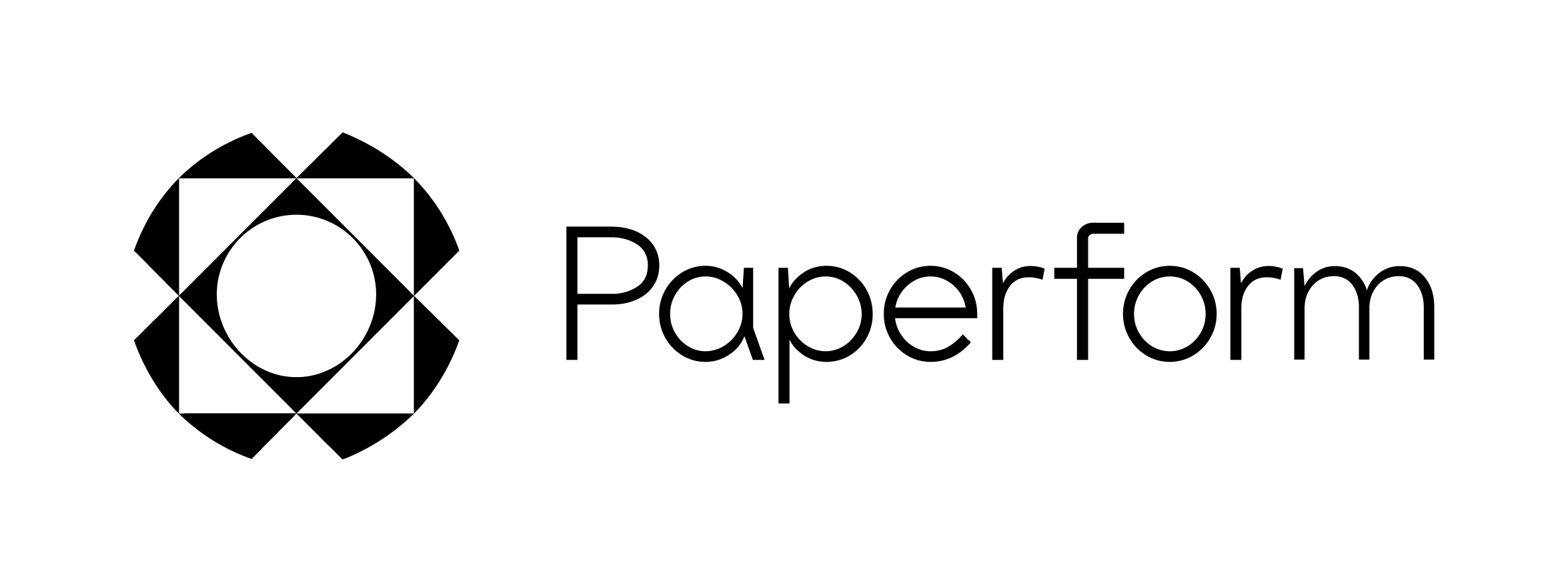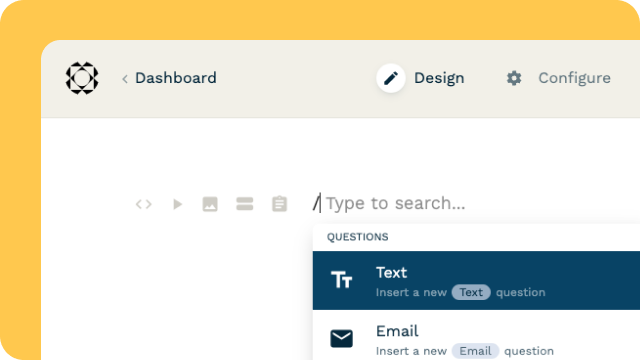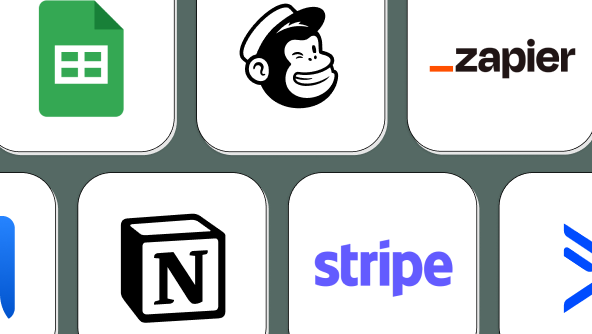
All Solutions

Explore all the solutions you can create with Paperform: surveys, quizzes, tests, payment forms, scheduling forms, and a whole lot more.
See all solutions











Connect with over 2,000 popular apps and software to improve productivity and automate workflows
See all integrationsProducts
Solutions
All Solutions

Explore all the solutions you can create with Paperform: surveys, quizzes, tests, payment forms, scheduling forms, and a whole lot more.
See all solutionsIntegrations

Connect with over 2,000 popular apps and software to improve productivity and automate workflows
See all integrationsResources
7 Best Pre-Screening Questions for Interviews - And Why They Work

By the time the perfect candidate accepts a job offer, they've crossed the finish line. They've made it through your entire hiring process.
From writing the job description and posting it to job boards to coming up with the right questions to suss out the interpersonal and technical skills of a potential candidate, you know there's a lot that goes into the recruiting process.
There's plenty of advice out there about how to put together the actual interview. But before you ever shake hands with qualified candidates, you both need to make it through this (often overlooked) step: the pre-screening interview.
What is a pre-screening interview?
A pre-screening interview is exactly what it sounds like: a short conversation that lets you gather more basic information about a candidate—like their previous work experience, qualifications, skills, and career goals.
This more nuts-and-bolts discussion helps you get a gut feel on the applicant and decide whether or not they're worth moving forward with, before investing a ton of time and energy.
Basically, you can think of it as the entry to the interview process. For that reason, you might hear the pre-screening interview called several different terms including a phone interview, pre-employment screening, or a phone screen interview.
How do you conduct a pre-screening interview?
As the above synonyms imply, pre-screening interviews can be completed over the phone or via video call, if you prefer to have a face-to-face chat with applicants.
Since the point of this type of interview is to save time, it’s generally not necessary to meet candidates in person at this stage. A virtual pre-screening meeting is supposed to help you separate the wheat from the chaff so you can dedicate your hours and energy to candidates that best check your boxes.
If you're interested in streamlining the recruiting process even further, completing your pre-screening interviews with forms can help. You'll get the answers and information you need, without any real-time, back-and-forth conversation.
It's simple: build a form that takes candidates through your pre-screening questions. To improve the candidate experience, use conditional logic so the form automatically adapts to their answers. It’s a win-win: your candidates don’t have to find time for another Zoom, and you can filter through more applicants without lifting a finger.
You can also integrate your form with apps like Slack or Trello to keep track of all of your recruiting and hiring tasks—and avoid losing things (and excellent candidates) in the shuffle.
7 pre-screening interview questions that help you find the best candidates
A pre-screening interview is relatively short and straightforward. It's not the time to dig into meaty behavioural interview questions and hypothetical situations.
Instead, this is your chance to address the more surface-level stuff with the simple goal of deciding if the candidate should move forward to an "actual interview."
So, what should you consider asking during these introductory conversations? Here are seven pre-screening interview questions to help you uncover the most qualified applicants.
1. Can you tell me a little bit about yourself?
This question is enough to make any job seeker groan and roll their eyes, but it's an important opportunity for you to get the conversation rolling—all while hearing their (hopefully well-rehearsed) elevator pitch.
What to look out for in a candidate's response:
- Ideally, the candidate will kick off their introduction with some basic information like their name, field, and years of experience.
- Next, they should quickly highlight their most notable skills and past experiences—particularly ones that are relevant to the role you're hiring for.
- Candidates might also briefly mention a few personal aspects, like their family or hobbies. It's not pertinent for the job but does provide a chance to establish some rapport and connect on a slightly deeper level.
2. Why are you looking for a new position?
Is the applicant hungry for career advancement? Were they laid off in a company restructuring? Do they have a complicated relationship with their current team leader and need to run far away? You might not get a completely honest answer (hey, job seekers often have their party manners on) but asking this question still helps you get the lay of the land.
What to look for in a candidate's response:
- They should provide a relatively straightforward answer for why they're currently on the job hunt (for example, "I'm eager to grow my career and am looking for my next challenge.")
- Keep in mind that if a candidate provides a vague answer (for example, "My last role wasn't the right fit for me"), it's possible that things didn't end on the best terms.
- If a candidate uses this opportunity to bad-mouth their past or current employers, that's a big, waving red flag.
3. What makes you the best fit for this role?
The goal of any recruiting process is to find someone who's the best match for what you're looking for, and this question helps you drill down to exactly why the candidate thinks they're the right fit.
What to look for in a candidate's response:
- If they did their pre-interview research, the applicant should be able to call out specific qualifications or responsibilities from your job description and clearly explain how those match their own skills and experiences.
- Selling yourself is hard, especially in a high-pressure situation like an interview. So, don't read into some nerves and stumbling if you're doing this interview in real time. Put yourself in their shoes: it's a nerve-wracking question to answer.
interview form
4. What excited you most about this position?
Here's another chance to determine just how closely they paid attention to the job description. It's also a great way to see if they're prepared and aren't confusing your open role with any of the others they might be pursuing.
What to look for in a candidate's response:
- They should be able to go beyond generalities ("This seems like a really great company!") and get specific about what exactly piqued their interest ("You mentioned you need someone to build relationships on behalf of the business, and thoughtful networking is one of my biggest passions and skills.")
5. Why do you want to work for our company?
Most job seekers are applying to numerous roles with multiple employers at once—you expect that. But, you also expect that they're prepared and ready to state why your company in particular appealed to them. This question helps you determine if they've actually researched your business or are simply using the same copy-and-paste answer for everyone.
What to look for in a candidate's response:
- Watch for the applicant to point to something specific about your business from their research—whether it's your employee-focused culture, commitment to your local community, or reputation for promoting from within.
- It's extra impressive if applicants can also call attention to some recent company news or happenings, like a new product launch or a recent award.
Form a better life now.
6. How would you describe your ideal work environment?
Culture plays a huge role in employee satisfaction and retention. In fact, toxic work culture is the number one reason people leave jobs.
That's why it's important to determine early on if a candidate will mesh with the environment you offer. This question gets down to what's most important to them, so you can see if your work culture will align.
What to look for in a candidate's response:
- Keep an eye out for adjectives that you're confident match your existing work environment.
- Similarly, you should also watch for adjectives that are the opposite of your business. For example, if they say "fast-paced" and you and your team pride yourselves on being thorough and deliberate, that might not be the best match.
- If a candidate can't provide a thoughtful answer or brushes off the question with something like, "I'm not too picky!" consider that a warning sign. They may not have a firm grasp on what they want.
7. What are your salary expectations?
Traditional advice would have you believe that it's taboo to talk about money this early on. But the truth is that it's an important consideration for both you and your candidates—and ensuring you're aligned right out of the gate will avoid wasting anybody's time.
With that said, applicants might be afraid of ruling themselves out on salary alone, so squelch some of those nerves by allowing them to provide a range rather than committing to a specific number.
What to look for in a candidate's response:
- Expect them to provide a salary range so that you can consider whether or not it fits your own compensation plans.
- Be aware that some candidates might skirt the issue by saying something like "negotiable." While a range or number is obviously preferred, this question alone shouldn't be the deciding factor. If they seem like a great candidate, move forward and continue the money conversation in your next interview.
Run your pre-screening interviews with Paperform
The above pre-screening interview questions will help you get the information you need from those early discussions, so you can curate an ideal candidate pool. When it comes to managing the actual hiring workflow, Paperform can help you automate the process and complete these initial conversations in less time, with fewer headaches.
Need an example? You can use Paperform to collect employment applications for your open roles. Using conditional logic, you can then automatically send pre-screening interview forms to any candidates who satisfy certain requirements.
Worried you'll miss a new submission? Integrate with Slack to get notified when a candidate submits your form, or even file the responses in a Notion Database for safekeeping.
When you're ready to move forward with a more in-depth, real-time interview, send successful candidates a link to your Paperform booking page so that they can book a video call.
There you have it—an easy, efficient, and streamlined way to take applicants all the way from job description to job offer.
Less time spent managing the intricacies of the hiring process means more time spent on what matters most: finding the best candidates. Start automating your recruiting process today with Paperform for free.
Form a better life now.
Get your 7 day unrestricted trialSmileBox started in a bedroom and scaled to 30,000 orders. Here’s how founder Tom Wrench used Paperf...
When Kathleen Celmins launched her AI-powered app, GlowSocial, she quickly realized that building cu...
Paperform has been recognized as a 2026 G2 Best Software Award winner! It is an honour we are deeply...
Trying to decide between Zapier and Stepper? This in-depth comparison breaks down pricing models, wo...